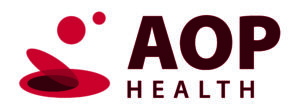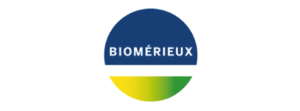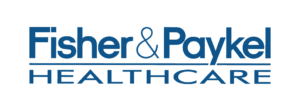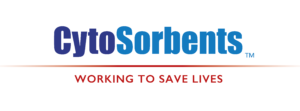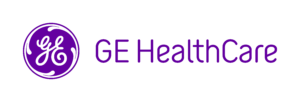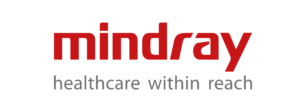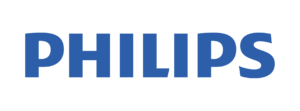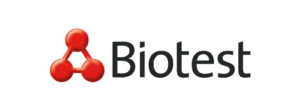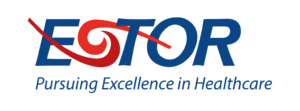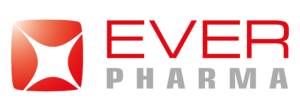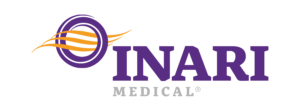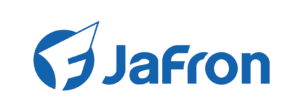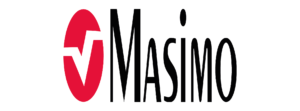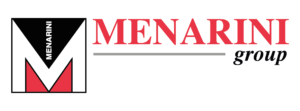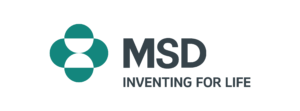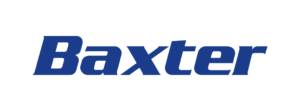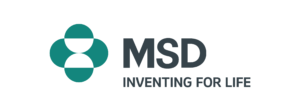36th Annual Congress – Milan
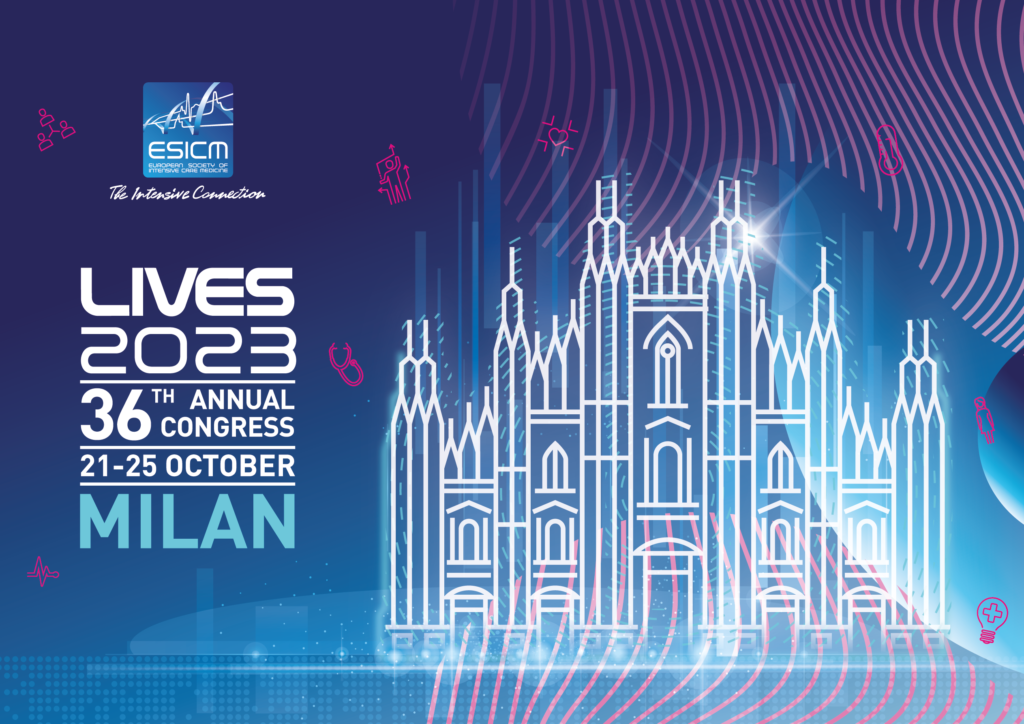
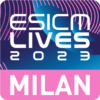
LIVES, October 21-25, 2023, Milan (MiCo, Milano Convention Center)
“I enjoy the diversity of people and teams you can talk to and the different perspectives and approaches they bring in disease treatment and procedures used,
which are different from what I am used back home” (Nuria, Portugal).
“You should just come. No matter where you are in your training, or what your subspecialty is, you will find something interesting” (Tina, Denmark).
Our annual congress attracts over 5,000 intensive care physicians, anaesthetists, trainees and nurses and allied healthcare professionals from every continent and +100 countries. Such extraordinary diversity makes LIVES the place where you can absorb the latest evidence and advance in patient care through multidisciplinary discussions and talks, interactive courses, demonstrations of the newest technology and simulation exercises.
Face-to-face in Milan, the innovative formats of the different sessions and activities will facilitate networking and knowledge exchange with colleagues and friends.
• 21-22 October ~ Pre-congress Educational Courses Weekend
• 23 October, 18:00-19:30 CEST ~ Welcoming Ceremony followed by Reception
• 23-25 October ~ Congress Scientific Sessions and Educational Workshops
GENERAL INFORMATION
LIVES is back to face-to-face!
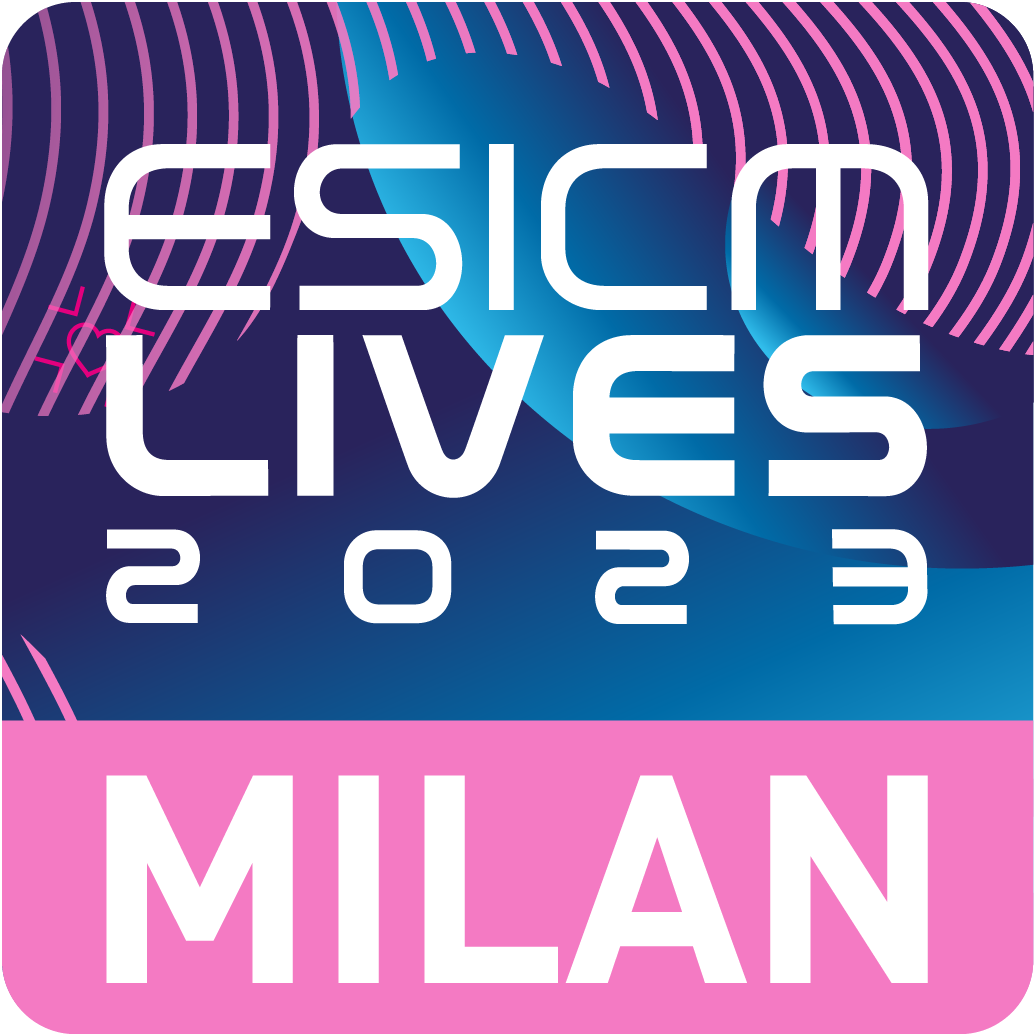 General Information
General Information
In October 2022 our annual congress returned in presence in Paris, gathering +5,000 physicians, anaesthetists, trainees and nursing and allied health professionals from every continent and +100 countries.
In 2023, we invite you once again to join for 5 eventful days, between 21 and 25 October, for pre-congress educational courses, scientific sessions and educational hands-on & workshops.
• 21-22 October ~ Pre-congress Educational Courses Weekend
• 23 October, 18:00-19:30 CEST ~ Opening Ceremony followed by Reception
• 23-25 October ~ Congress Scientific Sessions and Educational Workshops
We look forward to meeting you, in person, in Milan!
Venue Address
MiCo - Milano Convention Center
Piazzale Carlo Magno, 1
20149 Milano, Italy
Access to the venue
By public transport
METRO Line 5, Portello station
By car
MICO Milano
Gate 2 – Via le Eginardo,
20149 Milano
Italy
Car Parking: Citylife car park
From the airport
Linate Airport: Metro Line 4 until San Babila, and then Metro Line 1 until Amendola.
Malpensa Airport: Train shuttle service to Milano Cardona, and then Metro Line 1 until Amendola or bus shuttles going.
Registration:
| Saturday, 21 October | 12:00 – 19:30 |
| Sunday, 22 October | 08:00 – 19:00 |
| Monday, 23 October | 07:00 – 20:00 |
| Tuesday, 24 October | 07:30 – 18:30 |
| Wednesday, 25 October | 07:30 – 15:30 |
Exhibition:
| Monday, 23 October | 08:00 - 21:00* |
| Tuesday, 24 October | 08:00 - 18:00 |
| Wednesday, 25 October | 08:00 – 14:00 |
*Networking Reception in the Exhibition Hall from 19:30
Cloakroom:
|
The cloakroom is located on the Level 1 of the MICO.
2.00 EUR will be charged for each piece of clothing and 5.00 EUR for each bag or suitcase.
Cloakroom opening hours:
| Monday, 23 October | 07:00 - 21:00 |
| Tuesday, 24 October | 07:30 – 18:30 |
| Wednesday, 25 October | 07:30 – 16:30 |
Free Wi-Fi is available throughout the MiCo - Milano Convention Center during the ESICM LIVES 2023 Congress.
SSID: LIVES2023
Password: lives2023
Restaurants
Lunches are not included in the registration fee.
There will be coffee and lunch areas in the Industry Exhibition.
An application has been made to the UEMS EACCME® for CME accreditation of this event.
Congress Language
The official language of the Congress is English. There will be no simultaneous translation.
Lost & Found
Lost items can be collected at the cloakroom during the Congress. Unclaimed items will be thrown away then.
Non-smoking Congress
ESICM LIVES 2023 is a non-smoking Congress. Therefore, ESICM thanks the participants in advance for not smoking in the MiCo - Milano Convention Center well as during coffee breaks and reception.
CME Credits
 CME Credits
CME Credits
CONGRESS ACCREDITATION
The ESICM LIVES 2023 Annual Congress, Milan, Italy 23/10/2023 - 25/10/2023 has been accredited by the European Accreditation Council for Continuing Medical Education (EACCME®) for a maximum of 20 European CME credits (ECMEC®s).
PRE-CONGRESS COURSES ACCREDITATIONS
The Advanced Course in Intensive Care Echocardiography, Milan, Italy, 21/10/2023-22/10/2023 has been accredited by the European Accreditation Council for Continuing Medical Education (EACCME®) with 9 European CME credits (ECMEC®s).
The accreditation of the Advanced Focus Session in ECLS/ECMO, Milan, Italy, 21/10/2023-22/10/2023has been accredited by the European Accreditation Council for Continuing Medical Education (EACCME®) with 10 European CME credits (ECMEC®s).
The Advanced Master Course in Acute Respiratory Failure & Mechanical Ventilation, Milan, Italy, 21/10/2023-22/10/2023 has been accredited by the European Accreditation Council for Continuing Medical Education (EACCME®) with 12 European CME credits (ECMEC®s).
The Advanced Master Course in Haemodynamics, Milan, Italy, 21/10/2023-22/10/2023 has been accredited by the European Accreditation Council for Continuing Medical Education (EACCME®) with 9 European CME credits (ECMEC®s).
The General Intensive Care Ultrasound, Milan, Italy, 21/10/2023-22/10/2023 has been accredited by the European Accreditation Council for Continuing Medical Education (EACCME®) with 10 European CME credits (ECMEC®s).
The EDIC II Preparation Course, Milan, Italy, 21/10/2023-22/10/2023 will not receive accreditation.
The Managing Health Care: A Health Policy and Economics Perspective, Milan, Italy, 21/10/2023-22/10/2023 will not receive accreditation.
Accreditation Statement
Each medical specialist should claim only those credits that he/she actually spent in the educational activity.
Through an agreement between the European Union of Medical Specialists and the American Medical Association, physicians may convert EACCME® credits to an equivalent number of AMA PRA Category 1 Credits™. Information on the process to convert EACCME® credits to AMA credits can be found at https://edhub.ama-assn.org/pages/applications.
Live educational activities occurring outside of Canada, recognised by the UEMS-EACCME® for ECMEC® credits are deemed to be Accredited Group Learning Activities (Section 1) as defined by the Maintenance of Certification Program of the Royal College of Physicians and Surgeons of Canada.
Information regarding the conversion of EACCME® credits
Credit will be converted based on one (1) hour of participation equalling one credit for all activities. Physicians wishing to convert EACCME® credits to AMA PRA Category 1 Credit™ will be required to access the AMA website at https://edhub.ama-assn.org/pages/applictations to obtain the necessary paperwork and instructions. Physicians and other health care professionals will be required to pay a processing fee to the AMA.
For other countries, please contact the relevant national/regional accreditation authority.
Frequently Asked Questions
 Still have questions? See our FAQ below.
Still have questions? See our FAQ below.
Registration
| Saturday, 21 October | 12:00 - 19:30 |
| Sunday, 22 October | 08:00 - 19:00 |
| Monday, 23 October | 07:00 - 20:00 |
| Tuesday, 24 October | 07:30 - 18:30 |
| Wednesday, 25 October | 07:30 - 15:30 |
Exhibition
| Monday, 23 October | 08:00 - 21:00* |
| Tuesday, 24 October | 08:00 - 18:00 |
| Wednesday, 25 October | 08:00 - 14:00 |
*Networking Reception in the Exhibition Hall
Clockroom
| Monday, 23 October | 07:00 - 21:00 |
| Tuesday, 24 October | 07:30 - 18:30 |
| Wednesday, 25 October | 07:30 - 16:30 |
The cloakroom is located on the Level 1 of the MICO.
2.00 EUR will be charged for each piece of clothing and 5.00 EUR for each bag or suitcase.
At the moment, the preliminary programme is available on our website on the e-Planner. The full programme can be viewed on the congress app.
Join us on the ESICM TV Studio everyday from 08:30.
If you are a registered delegate, you will be able to access the TV Studio onsite or on the Congress App.
If you are not registered delegate, you can access free of charge the TV Studio on Esicm WEBTV - Esicm WEBTV.
Yes, if you are a registered delegate you will be able to access all of our sessions and watch them again during 3 months indefinitely and as often as you like on the congress app.
For any requests or issues regarding the Congress APP please contact support@cyimhelp.zendesk.com
An APP Help Desk Information will be available onsite in Milan at the Registration Desks.
Yes, those who register for the congress will receive a certificate of attendance by email.
The ESICM LIVES 2023 Annual Congress, Milan, Italy 23/10/2023 - 25/10/2023 has been accredited by the European Accreditation Council for Continuing Medical Education (EACCME®) for a maximum of 20 European CME credits (ECMEC®s).
To claim your CME credits you need first to complete a short questionnaire about your LIVES experience, which you will receive by email. The CME certificate will then be available to download and/or print.
Yes, those who register for the congress and present their abstract onsite will receive an abstract certificate of attendance by email the week after the end of the event.
Please contact the Registration Department at registration@esicm-congress.org
PROGRAMME
Abstracts
 Abstracts
Abstracts
Abstract Book
All accepted abstracts are published in electronic format both on the ESICM and on the ICMx websites in the ICMx Supplement of October 2023.
All ESICM Abstract Books from 2014 to 2023 can be found here.
Abstract Awards
Ten Best Abstracts Awards
Presenters of the 10 best abstracts will receive an award including one free registration to LIVES 2024 (core congress).
Abstracts selected by the jury will be presented in our 2 Abstract Award Winning Sessions during the Congress on Monday 23 October at 10:45-12:00 & Wednesday 25 October at 09:30-10:45 in room Gold Plenary:
000265 - Antibiotic target failure in neurocritically ill patients: a DOLPHIN trial post-hoc analysis
Saliha Ergezen (Rotterdam, Netherlands)
000340 - Machine-learning approach for detecting hydrostatic pulmonary oedema in the Emergency Department through haemoglobin changes
Francesco Gavelli (Novara, Italy)
000380 - Long term brain structural correlates of cognitive outcome in survivors of Covid-19 related ARDS (C-ARDS)
Sandra Magnoni (Trento, Italy)
000561 - Higher versus lower blood pressure targets after cardiac arrest: systematic review with individual patient data meta-analysis
Ville Niemelä (Helsinki, Finland)
000612 - Utility of tracheal pressure to estimate the muscle pressure index
Giulia Guidetti (Málaga, Spain)
000709 - Enhancing Early Rehabilitation Across Two Adult Critical Care Units
Anna Makower-Jones (Coventry, United Kingdom)
000798 - Virtual Reality Pre-Operative Immersive Experience to Improve Patient’s ICU Experience and Reduce Post-operative Delirium Incidence
Robert Anderson (Rochester, United States of America)
001163 - Predictive value of the EEG after cardiac arrest: validation of the ERC-ESICM recommendations
Sara Turella (Roma, Italy)
001357 - Red Blood Cell Transfusion in the Intensive Care Unit: the InPUT-study, a Worldwide Prospective Cohort Study on Transfusion Practices
Jorinde Raasveld (Amsterdam, Netherlands)
001387 - Impact of subject-ventilator dyssynchrony on diaphragm function and structure
Mathieu Capdevila (Montpellier, France)
Three N&AHP Abstract Awards
The N&AHP best abstract award includes:
- one free registration to LIVES 2024 (core congress) plus travel and accommodation (up to 1.000 Euro).
- two runners-up will receive free registrations to LIVES 2024 (core congress).
Abstracts selected by the jury will be presented in our session "N&AHP unlimited and networking: Research leaders" during the Congress on Tuesday 24 October at 16:40-18:00 in room Space 4:
000709 - Enhancing Early Rehabilitation Across Two Adult Critical Care Units
Anna Makower-Jones (Coventry, United Kingdom)
000849 - Facilitators and barriers in the use of a digital diary in the intensive care unit
Carola Schol (Rotterdam, Netherlands)
001256 - Physical function measures in ICU survivors, where to now? A Scoping Review
Alison Lupton-Smith (Stellenbosch, South Africa)
Scientific Programme
 Scientific Programme
Scientific Programme
At LIVES 2023 in Milan, the innovative formats of on-site sessions and activities will facilitate networking and knowledge exchange with colleagues and friends.
The scientific programme will include an ample variety of formats: symposia, dynamic debates, case presentations, interactive lectures and case discussions and many more!
What can you expect at LIVES 2023?
Debates
Take part in in-depth discussions about complex problems/situations that clinicians address in their daily practice. Experts from various areas of intensive care medicine are invited to speak on a set topic, then the moderator and audience can join the debate.
Hot Topics Session
Session at the end of the congress devoted to the presentation of cutting-edge research on the cornerstones of Intensive Care Medicine to a very large audience.
Latest research from the ICM Journal
This session will discuss a series of papers recently published in the Intensive Care Medicine Journal and deep dive into their implication for clinical practice:
• Effects of an online information tool on post-traumatic stress disorder in relatives of intensive care unit patients (ICU-Families-Study)
• Propafenone versus amiodarone for supraventricular arrhythmias in septic shock
• Magnesium Sulphate in Patients with Thrombotic Thrombocytopenic Purpura (MAGMAT)
• Safety and Efficacy of Artesunate Treatment in Severely Injured Patients with Traumatic Hemorrhage. The TOP-ART Randomized Clinical Trial
• Interferon gamma-1b for the prevention of hospital-acquired pneumonia in critically ill patients
• Prehospital High-Dose Methylprednisolone in Resuscitated Out-of-Hospital Cardiac Arrest Patients (STEROHCA): A Randomized Clinical Trial
NEXT Lounge
The place for young intensivists and ICM trainees to meet, mingle and enjoy a specially-designed parallel scientific programme.
Poster Stations
Abstract presenters will have a brief discussion of their research, answering questions and comments by the moderators and the audience.
Educational Programme
 Education & Training at LIVES 2023
Education & Training at LIVES 2023
State of the Art Content through Innovative Education & Training
LIVES 2023 is designed to meet the educational needs of our Intensive Care community, and facilitate best practice exchange for better clinical performance and patient outcome.
Following the technological advances, LIVES 2023 will integrate the digital innovation in the education dimension through Virtual Reality and Immersive Learning.
Thematic trainings and events will wait for you, from pre-congress courses to workshops planned during the congress.
Seize the opportunity to learn from international experts and peers in person! Secure your spot now - registrations are open!
We hereby would like to wholeheartedly thank all the companies who provided material support for our educational activities at the congress.
Pre-Congress Courses, October 21-22
Join our pre-Congress courses based on your topic of interest and level of expertise.
The following events will be held at LIVES 2023:
- Advanced Course on Critical Care Echocardiography (EDEC)
- Advanced Focus Session in ECLS/ECMO
- Advanced Master Course in ARF & Mechanical Ventilation
- Advanced Master Course in Haemodynamics
- EDIC II Preparation Course
- General Intensive Care Ultrasound
- Managing Health Care: A Health Policy and Economics Perspective
Max number of participants: 100
The ESICM Advanced Course on Critical Care Echocardiography is designed for intensivists who have achieved a basic level of education and training in the use of echocardiography in an intensive care setting and would like to obtain advanced knowledge and certification of their competency.
Complement this course with a practical workshop that you can book separately during the congress.
Max number of participants: 85
The joint EuroELSO & ESICM Advanced Focus Session in ECLS/ECMO will integrate at advanced level topics such as Key principles of ECMO; How to enhance lung protection on VV-ECMO; Preventing and treatment of pulmonary edema on VA-ECMO
Interactive lectures will alternate with clinical case discussions and practical demonstrations.
This event is part of a joint EuroELSO and ESICM learning programme to provide specialised training in extracorporeal techniques to healthcare professionals interested in the field. Certificates may be validated at EuroELSO on the path to the ELSO Adult ECMO Practitioner Certification (E-AEC).
Requirements to join the course
Participants should have at least a basic understanding of, and preferably clinical experience with extracorporeal membrane oxygenation. They can either be
- Intensivist (in training), Anesthesiologist (in training), Perfusionist (in training) or MD with at least 2 years of clinical experience in intensive care
OR - Registered ICU Nurse with at least two years of experience treating critically-ill patients
Complement this course with a practical workshop that you can book separately during the congress.
Max number of participants: 100
The ESICM Advanced Master Course in ARF & Mechanical Ventilation will integrate at an advanced level topics such as individualised PEEP-setting and transitioning from controlled and assisted ventilation in ARDS patients.
Interactive lectures will alternate with clinical case discussions, practical demonstrations and discussion of techniques.
The course will conclude with a friendly competition and awards.
Requirements to join the course
- Completed the ESICM Foundation course in ARF & MV
OR - Intensivist (in training), Anaesthesiologist (in training), or physician with at least 2 years of clinical experience in intensive care with ventilated patients
OR - Registered ICU Nurse / respiratory therapist with at least two years of experience treating ventilated patients
Max number of participants: 75
This ESICM Advanced Master Course in Haemodynamics will integrate and simulate at advanced level a management plan for the patient with septic shock.
To do so, participants will get immersed in realistic clinical scenarios through Virtual Reality, followed by discussions and specific theoretical insights.
Requirements to join the course
Participants should have at least a basic understanding of, and preferably clinical experience with, invasive arterial pressure monitoring and derived variables, transpulmonary thermodilution, continuous cardiac output monitoring by pulse contour analysis, pulmonary artery catheterization and critical care ultrasound.
Complement this course with practical workshops that you can book separately during the congress.
Max number of participants: 60
This is the official ESICM Preparation Course for the European Diploma in Intensive Care (EDIC). You will be able to sit the mock examination following the latest examination formats, and receive individual feedback from experienced EDIC examiners.
You will also know more about tips on how to pass the exam, including guidance on educational materials and other resources to best prepare for the Part II EDIC exam.
Content
- Computer-based Assessment on Curves, Biochemistry and Imaging
- Clinical Case Scenarios on Medical and Cardiothoracic topics
- Mock exams in small groups
Max number of participants: 60
The ESICM General Intensive Care Ultrasound (GENIUS) course is a comprehensive, learner-centric course which aims to support physicians in achieving the competencies described in the recently published ESICM guidelines on ultrasound competencies.
The two-day training programme will offer theoretical insights, hands-on learning and case discussions with experts in critical care ultrasound. There will be ample opportunities to discuss and interact with colleagues who share a passion for critical care ultrasound, building learning as well as research networks.
Max number of participants: 40
Built around four main lectures, the course will feature formal lectures, exercises, problem solving and group discussion around how health policy and economics relates to the challenges of leadership and management in healthcare organisations.
The course is organised in collaboration with the Department of Health Policy of the London School of Economics (UK).
Congress Workshops, October 23-24-25
Please note:Registration for the congress is a prerequisite for signing up for the below practical workshops carried out during the congress.
Workshops
Skill and upskill through practical hands-on and simulations.
Duration: 2,5 hour
Max number of participants: 120
While the pre-Congress Advanced Course on Critical Care Echocardiography combines interactive lectures, keynotes and case debates, the practical workshop to be carried out during the congress will help you to complement theory with practice through a two-component worskhop:
- Component 1: Manipulation of the probe in advanced CCE (1 h)
- Component 2: Image interpretation in advanced CCE (1,5h)
Please note: workshop slots may be booked also by participants who are not registered for the EDEC diploma.
Complement this practical two-component workshop with the pre-Congress Advanced Course on Critical Care Echocardiography.
Duration: 4 hours/workshop
Number of available slots: 5
Number of participants: 32 max/workshop
Learning objectives:
- Select suitable patients suitable for awake tracheal intubation, preparation and performance using a flexible bronchoscope.
- Use of supraglottic airway devices in difficult airway management.
- Conduct percutaneous emergency cricothyroidotomy for rescue oxygenation.
- Carry out percutaneous tracheostomy in ICU.
Content
- Station 1. Supraglottic airway devices and video laryngoscopes
- Station 2. Awake tracheal intubation using the flexible bronchoscope
- Station 3. Emergency cricothyroidotomy and percutaneous tracheostomy
- Station 4: Diagnostic bronchoscopy
Duration: 4 hours/workshop
Number of available slots: 5
Number of participants: 30 max/workshop
The AMS workshop will consist of a case-based, expert-led workshop that will immerse participants in realistic and safe learning environments through Virtual Reality. Participants will be empowered to enjoy the opportunities that come with the digital decade.
Learning objectives
- Identify the likely infection and initial empiric antimicrobial selection (including initial PK/PD considerations)
- Understand and analyze the role of diagnostics in identifying the microorganisms involved in infection and their resistance patterns
- Examine the modification of antimicrobial therapy in light of microbiology, clinical evolution and TDM (where appropriate)
- Understand and analyze the importance of source control in infection management, and how this contributes to AMS
- Discuss and evaluate the importance of multi-professional teams in each of the above steps – intensivists, nurses, pharmacists, microbiologists, surgeons.
- Report how individual patient data contributes to surveillance, and feeds into decision making and guidelines
Please note: The workshop is part of the AMS learning pathway, and is supported by an unrestricted educational grant from bioMérieux. Workshop slots may be booked by both AMS pathway participants and other participants interested in the topic.
Joint event ESICM & EuroELSO
Duration: 4 hours/workshop
Number of available slots: 5
Number of participants: 32 max/workshop
Certification: Certificates are issued in collaboration with EuroELSO. Certificates may be validated at EuroELSO on the path to the ELSO Adult ECMO Practitioner Certification (E-AEC).
Learning objectives
- Understand the respective indications and basic management of V-A and V-V ECMO
- Identify basic circuit components & mechanical troubleshooting
- Understand the physiology of ECMO-patient interactions
- Identify and manage drainage insufficiency
- Identify and manage recirculation (V-V)
- Identify and manage LV distension (V-A)
- Identify and manage differential oxygenation (V-A)
- Understand the basics of weaning from V-A and V-V ECMO-support
- Gain the basic skill set to perform an ultrasonographic vessel assessment and echo guided percutaneous ECMO cannulation (Seldinger technique)
Content
- Station 1: Cannulation demonstration
- Station 2: V-V station
- Station 3: V-A station
- Station 4: Normal pump physiology and troubleshooting
Complement this practical workshop with the pre-Congress Advanced Focus Session in ECLS/ECMO.
Duration: 4 hours/workshop
Number of available slots: 5
Number of participants: 32 max/workshop
Learning objectives
- Remind the determinants of arterial pressure and explain how to interpret it at the bedside
- Underline how different cardiac output monitoring devices work and detail their respective indications
- Remind the means for assessing tissue oxygenation and to discuss their drawbacks and advantages
- Discuss the practical use of different haemodynamic variables during simulation and clinical cases
Content
- Station 1: Clinical case debate and practical demonstration: determinants of arterial pressure and their interpretation at the bedside; cardiac output monitoring devices simulation
- Station 2: Practical use of different haemodynamic variables
- Station 3: Assessment of tissue oxygenation
Complement this practical workshop with the pre-Congress Advanced Master Course in Haemodynamics.
Duration: 4 hours/workshop
Number of available slots: 5
Number of participants: 32 max/workshop
Learning objectives hands-on :
-
- Learn how to set up a CRRT circuit
- Identify practical issues associated with vascular access and filter
- Manage and understand common alarms
Content
-
- Station 1: Alarms / troubleshooting
- Station 2 - Citrate regional anticoagulation
- Station 3 - Setup
- Station 4 - Setup
Baxter practical tutorial
If you wish to learn more about organ support therapies and expanded capabilities of the CRRT machine, we invite you to join Baxter's practical tutorial, free of charge.
The tutorial will be repeated twice, on Monday, Oct 23, and Tuesday, Oct 24, from 12:45 to 13:45 and will not overlap with the RRT workshop so that you can benefit from both. More information coming soon.
REGISTRATION
Registration Information
 Registration Information
Registration Information
Registrations for LIVES 2023 are now open.
Registration Department
K.I.T. Group GmbH | Association & Conference Management | Kurfürstendamm 71, 10709 Berlin, Germany | Tel: +49 (0)30 24 603 319 | Email
Prices are per person and 22% Italian VAT is included in below costs.
CONGRESS FEES
CONGRESS (from Mon 23 Oct until Wed 25 Oct)
| ESICM MEMBER | Early fees Until 29 August |
Standard 30 August - 10 October |
Late fees 11 October - end of the congress |
One day ticket*** |
| Physician | 630 € | 730 € | 860 € | 430 € |
| *From Low and Lower Middle Income Country (LMIC) Physician | 430 € | 510 € | 610 € | 350 € |
| **N&AHP (including N&AHP Plus) / *From Low and Lower Middle Income Country (LMIC) **N&AHP | free of charge | free of charge | free of charge | free of charge |
| Physician In Training | 220 € | 290 € | 390 € | 250 € |
| *From Low and Lower Middle Income Country (LMIC) Physician In Training | 160 € | 230 € | 330 € | 250 € |
| NON-MEMBER | ||||
| Physician and other Non-Member | 900 € | 1,000 € | 1,150 € | 610 € |
| Physician In Training | 410 € | 480 € | 580 € | 450 € |
| **N&AHP | free of charge | free of charge | free of charge | free of charge |
| Medical Student | Free for the first 200 registrants, then 130 € |
160 € | 190 € | 110 € |
PRE-CONGRESS COURSES WEEKEND (Sat 21 Oct & Sun 22 Oct) - Seats limited!
| ESICM MEMBER | Until 29 August |
From 30 August |
| Physician | 500 € | 620 € |
| Physician In Training / **N&AHP | 300 € | 420 € |
| NON-MEMBER | Pre-Congress 2 Day Course Until 25 August |
Pre-Congress 2 Day Course Onsite From 26 August |
| Physician | 760 € | 880 € |
| Physician In Training / **N&AHP | 480 € | 600 € |
| Medical Student | 300 € | 420 € |
Please note: If you only wish to attend the pre-congress courses, registration to the congress is not mandatory.
CONGRESS WORKSHOPS WEEK (Mon 23 Oct / Tue 24 Oct / Wed 25 Oct) - Seats limited!
| If registered for the Haemodynamics, Mechanical Ventilation Adv CCE pre-congress courses Until 29 August |
If NOT registered for the Haemodynamics, Mechanical Ventilation Adv CCE pre-congress courses Until 29 August |
From 30 August |
|
| ESICM MEMBER | 80 € | 120 € | 260 € |
| NON-MEMBER | 80 € | 160 € | 300 € |
Please note: Registration for the congress is a prerequisite for signing up for the educational sessions carried out during the congress.
NB:
Registrations for more than 5 (five) participants will be handled separately as a group booking.
We also offer free registration for Media representatives. Please send a valid document (press ID) to the ESICM Registration Department by Email before you submit your online registration.
*Low and Lower Middle Income Country (LMIC), as per the World Bank classification.
**N&AHP may be any nurse or allied healthcare professional (see professions here). Industry Representatives cannot be considered as Allied Health Professionals.
***To be purchased on-site. Delegates with a day pass do not have a conference profile, which gives them access to the virtual part of the congress (which is open every day).
Terms and conditions for registrations
If you are not yet a member of ESICM, there is no better time to join.
Join now! and benefit from this offer and all the other advantages membership of our global intensive care community brings.
More information about ESICM membership fees, HERE
REGISTRATION DATES
Early registration: until 29 August 2023, 23:59 CEST
Standard registration: from 30 August until 10 October 2023, 23:59 CEST
Late registration: from 11 October until end of the congress
LETTER OF INVITATION
Individuals requiring an official Letter of Invitation can request one from the ESICM Registration Department. To receive a Letter of Invitation, attendees must first register to the Congress and submit payment in full.
The Letter of Invitation does not financially obligate the K.I.T. Group or ESICM in any way. All expenses incurred in relation to the Congress are the sole responsibility of the attendee.
**** Important Alert ****
There are an increasing number of fraudulent websites and individuals that impersonate ESICM and our Annual Congress, but that are in no way associated with ESICM.
We would like to alert all our members and delegates to be aware of companies claiming to be ESICM partners and we strongly advise you to only use our official Congress registration partner, KIT.
Please also pay attention to fraudulent websites. There is only one ESICM LIVES 2023 Website and ESICM’s only official provider of housing and registration is KIT Group GmbH.
ESICM will not accept any responsibility for bookings made via unofficial websites and agencies.
REGARDING AIFA REQUESTS
AIFA (Italian Medicines Agency) Congresses and Meeting in Italy
In Italy congresses and meetings on topics related to the use of pharmaceuticals are governed by Article 124 of Legislative Decree 24 April 2006, N 219 (The Decree).
In Italy, any pharmaceutical company (not only Italian pharmaceutical companies since the congress will be held in Italy) that sponsors a congress on topics related to the use of its pharmaceutical products, must submit an application to the competent unit of the Italian Medicines Agency (AIFA) to obtain a specific authorization through a single intermediary who submits all requests for authorisation.
So, if your pharmaceutical company has a marketing authorization (MAH or AIC) or the companies responsible for the effective marketing of your pharmaceutical products and sponsor the congress on topics related to the use of your pharmaceutical products, you should contact Atlante Viaggi communicating your SIS code, by July 15th, 2023: barbara.mantegazza@atlanteviaggi.com
As per Italian law, the AIFA authorization is necessary
- for each pharmaceutical company (with Marketing Authorization Holder or the companies responsible for the actual marketing of pharmaceutical products) sponsoring the congress on topics in any way related to the use of its own pharmaceutical products.
the AIFA authorization is not necessary
- when a company promotes by advertising only medical devices or food supplements during a congress (products without Marketing Authorization)
- when a company sponsors a meeting about topics not related to the use of any of its own medicinal products; in this case the company is not allowed to expose or distribute any kind of advertising material during the meeting (Section 9 art. 124 D.L. n.219/06)
For more information you must contact your Regulatory Office or your Italian branch to receive assistance in this procedure which is mandatory.
Hotel Accommodation
 Hotels in Milan
Hotels in Milan
A number of hotels in different categories have been pre-booked at preferential rates for the congress. Rates include breakfast, local VAT and city tax. The hotels are located both close to the congress venue and in the city centre, with convenient and fast routes to the congress venue.
Book your hotel accommodation ahead of time and benefit from the best rates and choices. Please contact the Hotel Department for further information.
Accommodation
K.I.T. Group GmbH is the official housing agency, selected by the congress organiser, to be in charge of the hotel bookings for ESICM 2023. Individual bookings and small groups of up to 10 delegates can be made via the booking platform, accessible via the link below.
Group Bookings
Please note that group reservations, 10 rooms or more, will be handled with separate contracts and separate regulations. Please contact the Hotel Department for further information.
**** Important Alert ****
There are an increasing number of fraudulent websites and individuals that impersonate ESICM and our Annual Congress, but that are in no way associated with ESICM.
We would like to alert all our members and delegates to be aware of companies claiming to be ESICM partners and we strongly advise you to only use our official Congress accommodation partner, K.I.T. Group GmbH.
Please also pay attention to fraudulent websites. There is only one ESICM LIVES 2023 Website and ESICM’s only official provider of housing and registration is K.I.T. Group GmbH.
ESICM will not accept any responsibility for bookings made via unofficial websites and agencies.
The designated official accommodation partner for the ESICM LIVES Annual Congress 2023 in Milan is K.I.T. Group GmbH:
K.I.T. Group GmbH
Kurfürstendamm 71
10709 Berlin
Germany
Tel. +49 30 24603 209
Email
Your hotel reservation will be part of the Congress Reservation block booking and the K.I.T. Group GmbH will be available to provide support.
SPONSORSHIP & EXHIBITION
Sponsorship Opportunities & Exhibition
 Industry Sponsoring & Exhibition
Industry Sponsoring & Exhibition
For questions regarding sponsorship, please contact:
Joel Alexandre
ESICM CEO
Email address: Joel.alexandre@esicm.org
Elise Maquestiaux
ESICM Congress Department
Email address: Elise.Maquestiaux@esicm.org
*** IMPORTANT ALERT ***
There are an increasing number of fraudulent websites and individuals that impersonate ESICM and our Annual Congress LIVES 2023, but they are in no way associated with ESICM.
We would like to alert our partners and sponsors to be aware of companies claiming to be ESICM partners and we strongly advise you to make sure that the person contacting you is either from the official ESICM team (emails coming from a @esicm.org mailbox) or from our exclusive exhibition management partner K.I.T Group GmbH (emails coming from a @kit-group.org mailbox).
Please also pay attention to fraudulent websites. There is only one ESICM LIVES 2023 website and ESICM’s only one provider regarding exhibition management is K.I.T. Group GmbH.
ESICM will not take any responsibilities for any booking made via unofficial websites and agencies.
EXHIBITION
From 9 January 2023, please click here to log in to ESOS®, your booking portal.
• Create a profile (an account) to access ESOS®.
• Fill out the company data and assign yourself a password.
If you are already registered, please use your existing email address and password.
How to Book Exhibition Space
From 16 January 2023, log into your ESOS® to book space:
• Click on «Exhibition Space Order” on your Exhibitor & Sponsor Checklist.
• Please choose your preferred area. Terms & Conditions stated in the Exhibition Guide must be accepted before confirming your booking.
Please check all details before confirming your exhibition space.
Your Exhibition space request is binding.
Contact:
Ms. Jelena Milovic
K.I.T. Group
Email address: industry@esicm-congress.org
MEDTECH EUROPE CODE
This event is compliant with the MedTech Europe Code of Ethical Business Practice.
More information here.
REGARDING AIFA REQUESTS
AIFA (Italian Medicines Agency) Congresses and Meeting in Italy
In Italy congresses and meetings on topics related to the use of pharmaceuticals are governed by Article 124 of Legislative Decree 24 April 2006, N 219 (The Decree).
In Italy, any pharmaceutical company (not only Italian pharmaceutical companies since the congress will be held in Italy) that sponsors a congress on topics related to the use of its pharmaceutical products, must submit an application to the competent unit of the Italian Medicines Agency (AIFA) to obtain a specific authorization through a single intermediary who submits all requests for authorisation.
So, if your pharmaceutical company has a marketing authorization (MAH or AIC) or the companies responsible for the effective marketing of your pharmaceutical products and sponsor the congress on topics related to the use of your pharmaceutical products, you should contact Atlante Viaggi communicating your SIS code, by July 15th, 2023: barbara.mantegazza@atlanteviaggi.com
As per Italian law, the AIFA authorization is necessary
- for each pharmaceutical company (with Marketing Authorization Holder or the companies responsible for the actual marketing of pharmaceutical products) sponsoring the congress on topics in any way related to the use of its own pharmaceutical products.
the AIFA authorization is not necessary
- when a company promotes by advertising only medical devices or food supplements during a congress (products without Marketing Authorization)
- when a company sponsors a meeting about topics not related to the use of any of its own medicinal products; in this case the company is not allowed to expose or distribute any kind of advertising material during the meeting (Section 9 art. 124 D.L. n.219/06)
For more information you must contact your Regulatory Office or your Italian branch to receive assistance in this procedure which is mandatory.
Sponsors & Exhibitors
The ESICM would like to wholeheartedly thank the following companies who are entitled to be recognised as:
Sponsored Sessions
 Industry Sponsored Sessions
Industry Sponsored Sessions
Industry sessions, organised by leading medical device and pharmaceutical companies, provide delegates with an in-depth view of innovations, developments and progress related to intensive care.
These sessions are organised outside the scientific programme to provide delegates with an opportunity to attend. These sponsored programmes do not form part of the official scientific programme of LIVES.

12:30 - 13:30
